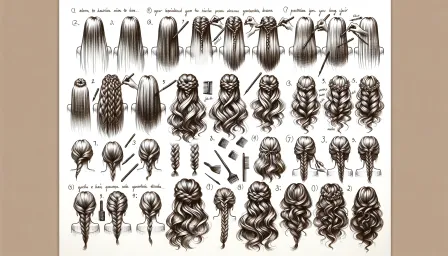The Ultimate Haircare Regimen for Oily Scalp: Tips and Tricks

Discover the ultimate haircare regimen for oily scalp. Get expert tips, tricks, and solutions to manage your oily scalp effectively.
An oily scalp can be frustrating and challenging to manage. It's not just about appearance—excessive oil can lead to dandruff, itching, and even hair loss if not properly treated. Fortunately, establishing a targeted haircare regimen for oily scalp can make a significant difference. In this article, we’ll provide you with the ultimate guide to managing an oily scalp effectively.
Understanding the Causes of Oily Scalp
To create an effective haircare regimen for oily scalp, it’s essential to understand the root causes. Several factors contribute to an oily scalp, including:
Genetics
Your genetic makeup significantly influences the oil production of your scalp. If oily skin runs in your family, you’re more likely to experience an oily scalp.
Hormonal Changes
Hormonal fluctuations, such as those experienced during puberty, pregnancy, and menopause, can lead to increased sebum production from your scalp's sebaceous glands.
Overwashing
Washing your hair too frequently can strip the scalp of natural oils, prompting the sebaceous glands to produce even more oil as a compensatory response.
Poor Diet
Consuming a diet high in greasy and fried foods can exacerbate oil production in both your skin and scalp.
Creating an Ideal Haircare Regimen for Oily Scalp
An effective haircare routine can help manage oil production and keep your scalp healthy. Here’s how to build a regimen that works:
1. Choose the Right Shampoo
Opt for a shampoo specifically designed for oily scalp. Look for ingredients like tea tree oil, salicylic acid, and zinc pyrithione, which help control sebum production.
2. Wash Less Frequently
It may seem counterintuitive, but washing your hair less often can help balance oil production. Aim to wash your hair 2-3 times a week.
3. Use a Scalp Scrub
Exfoliating your scalp once a week with a gentle scalp scrub can help remove excess oil and prevent buildup. Be cautious not to overdo it, as this can irritate the scalp.
4. Condition Wisely
Use a lightweight, oil-free conditioner and apply it only to the ends of your hair. Avoid conditioning your scalp, as this can add unnecessary oil to the area.
5. Avoid Heavy Styling Products
Heavy gels, creams, and oils can weigh down your hair and contribute to an oily scalp. Opt for lighter styling products and use them sparingly.
Nourishing Your Scalp from Within
A holistic approach to managing an oily scalp includes nourishing your body from within. Here are some tips:
1. Diet
Consume a balanced diet rich in nutrients. Include plenty of fruits, vegetables, lean proteins, and whole grains. Omega-3 fatty acids, found in fish and flaxseed, can help regulate oil production.
2. Hydration
Staying hydrated is crucial for overall skin health, including your scalp. Aim to drink at least 8 glasses of water a day.
3. Supplements
Consider taking supplements like zinc or vitamin B6, which can help control oil production. Always consult with a healthcare professional before starting any supplement regimen.
Lifestyle Changes to Support Scalp Health
Incorporating a few lifestyle changes can also make a big difference in managing an oily scalp:
1. Stress Management
Stress can trigger hormonal changes that lead to increased sebum production. Practice stress-reducing activities like yoga, meditation, or regular exercise.
2. Proper Hygiene
Keep your hairbrush, pillowcases, and hats clean to prevent transferring oils and bacteria to your scalp.
3. Avoid Heat Styling
Excessive use of heat-styling tools can dry out your scalp, leading to increased oil production. Use these tools sparingly and always apply a heat protectant.
When to Seek Professional Help
Sometimes, despite your best efforts, DIY solutions might not suffice. If you’ve tried various methods and still struggle with an oily scalp, it’s time to consult a dermatologist. A professional can recommend treatments like medicated shampoos, topical solutions, or even prescribe medications if necessary.
Conclusion
Managing an oily scalp is a multifaceted process that involves the right products, dietary and lifestyle changes, and occasionally professional intervention. By understanding the underlying causes and following a dedicated haircare regimen for oily scalp, you can achieve a healthier and more balanced scalp. Remember, consistency is key, and with time and patience, you’ll find what works best for you.



























